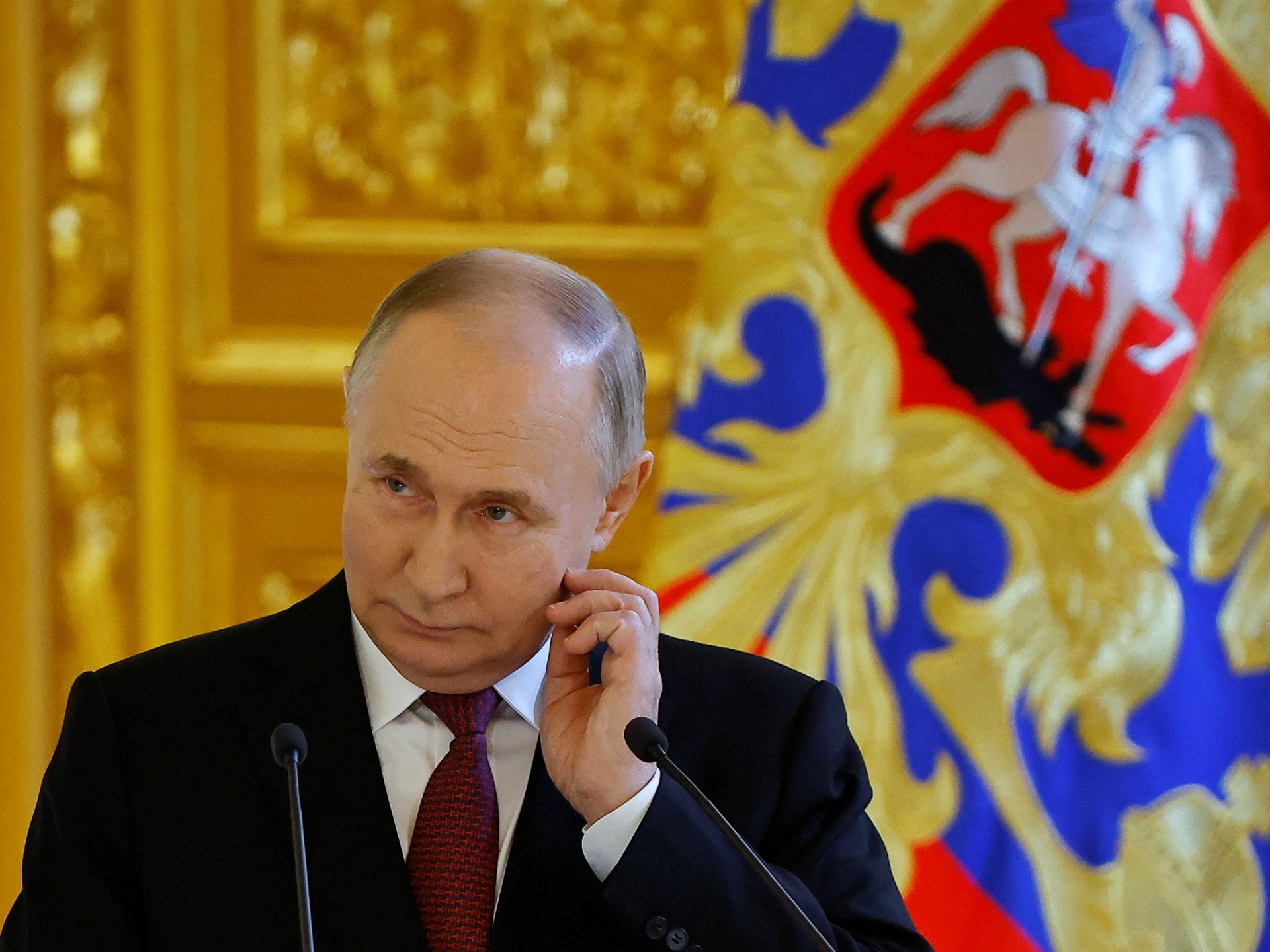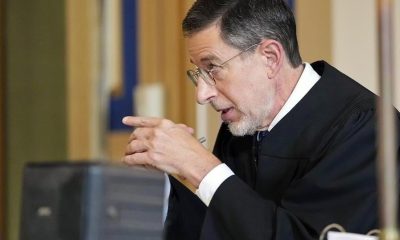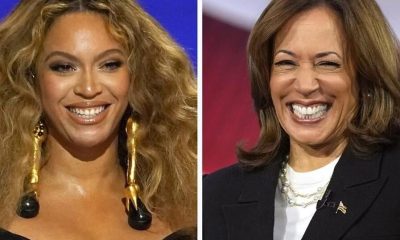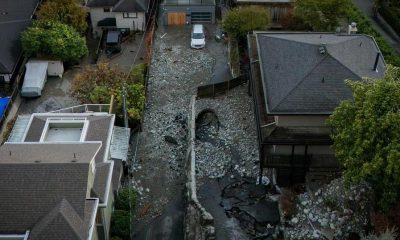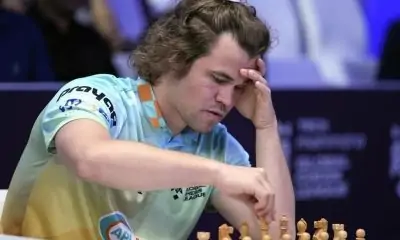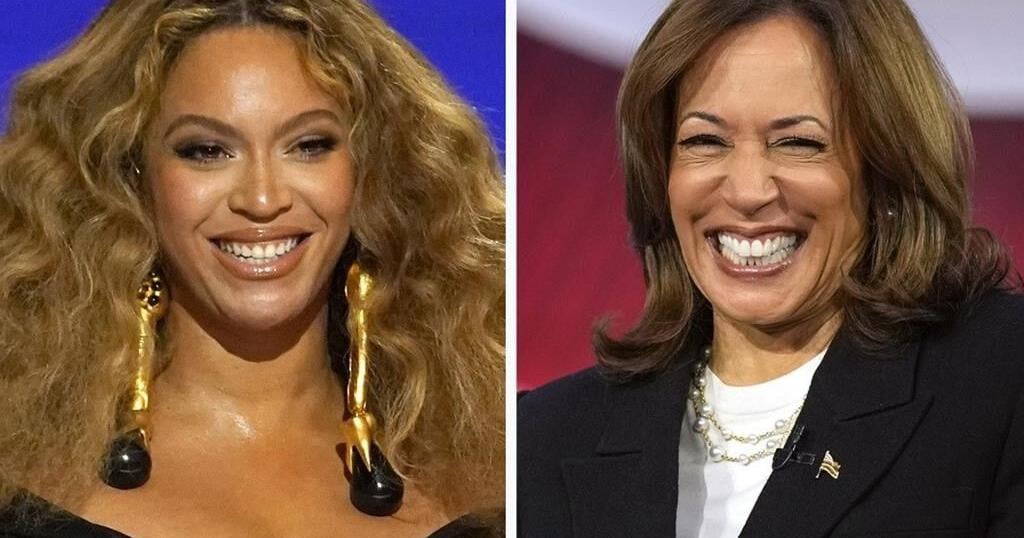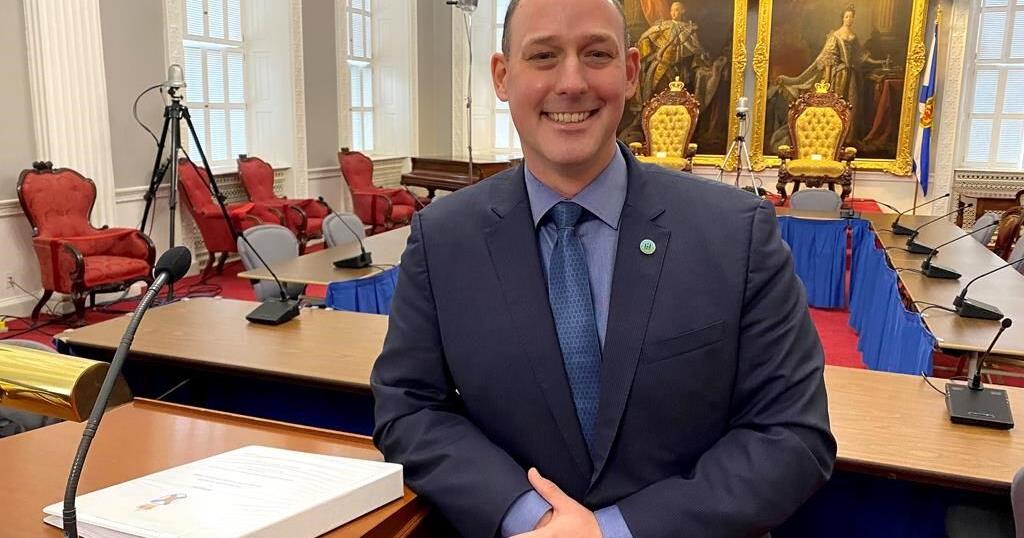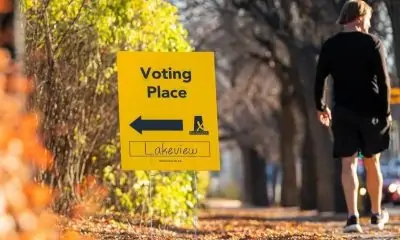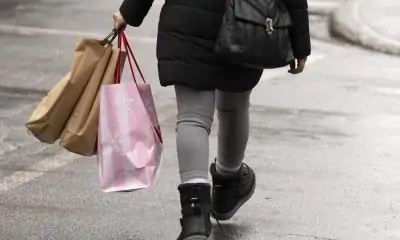HOUSTON (AP) — Vice President Kamala Harris will team up with Beyoncé on Friday for a rally in solidly Republican Texas aimed at highlighting the medical fallout from the state’s strict abortion ban and putting the blame squarely on Donald Trump.
It’s a message intended to register far beyond Texas in the political battleground states, where Harris is hoping that the aftereffects from the fall of Roe v. Wade will spur voters to turn out to support her quest for the presidency.
Harris will also be joined at the rally by women who have nearly died from sepsis and other pregnancy complications because they were unable to get proper medical care, including women who never intended to end their pregnancies.
Some of them have already been out campaigning for Harris and others have told their harrowing tales in campaign ads that seek to show how the issue has ballooned into something far bigger than the right to end an unwanted pregnancy.
Since abortion was restricted in Texas, the state’s infant death rate has increased, more babies have died of birth defects and maternal mortality has risen.
With the presidential election in a dead heat, the Democratic nominee is banking on abortion rights as a major driver for voters — including for Republican women, particularly since Trump appointed three of the Supreme Court justices who voted to overturn the constitutional right. He has been inconsistent about how he would approach the issue if voters return him to the White House.
Harris’ campaign has taken on Beyonce’s 2016 track “Freedom” as its anthem, and the message dovetails with the vice president’s emphasis on reproductive freedom. The singer’s planned appearance Friday adds a high level of star power to Harris’ visit to the state. She will be the latest celebrity to appear with or on behalf of Harris, including Lizzo, James Taylor, Spike Lee, Tyler Perry, Samuel L. Jackson, Bruce Springsteen and Eminem. While in Texas, Harris also will tape a podcast with host Brené Brown.
Trump is also headed to Texas Friday where he’ll talk immigration, and tape a podcast with host Joe Rogan.
There is some evidence to suggest that abortion rights may drive women to the polls as it did during the 2022 midterm elections. Voters in seven states, including some conservative ones, have either protected abortion rights or defeated attempts to restrict them in statewide votes over the past two years.
“Living in Texas, it feels incredibly important to protect women’s health and safety,” said Colette Clark, an Austin voter. She said voting for Harris is the best way to prevent further abortion restrictions from happening across the country.
Another Austin resident, Daniel Kardish, didn’t know anyone who has been personally affected by the restrictions, but nonetheless views it as a key issue this election.
“I feel strongly about women having bodily autonomy,” he said.
Harris said this week she thought the issue was compelling enough to motivate even Republican women, adding, “for so many of us, our daughter is going to have fewer rights than their grandmother.”
“When the issue of the freedom of a woman to make decisions about her own body is on the ballot, the American people vote for freedom regardless of the party with which they’re registered to vote,” Harris said.
Harris isn’t likely to win Texas, but that isn’t the point of her presence Friday.
“Of all the states in the nation, Texas has been ground zero for harrowing stories of women, including women who have been denied care, who had to leave the state, mothers who have had to leave the state,” said Skye Perryman, president of Democracy Forward, a legal group behind many lawsuits challenging abortion restrictions. “It’s one of the major places where this reality has been so, so devastatingly felt.”
Democrats warn that a winnowing of rights and freedoms will only continue if Trump is elected. Republican lawmakers in states across the U.S. have been rejecting Democrats’ efforts to protect or expand access to birth control, for example.
Democrats also hope Harris’ visit will give a boost to Rep. Colin Allred, who is making a longshot bid to unseat Republican Texas Sen. Ted Cruz. Allred will appear at the rally with Harris.
When Roe was first overturned, Democrats initially focused on the new limitations on access to abortion to end unwanted pregnancies. But the same medical procedures used for abortions are used to treat miscarriages.
And increasingly, in 14 states with strict abortion bans, women cannot get medical care until their condition has become life-threatening. In some states, doctors can face criminal charges if they provide medical care.
About 6 in 10 Americans think their state should generally allow a person to obtain a legal abortion if they don’t want to be pregnant for any reason, according to a July poll from The Associated Press-NORC Center for Public Affairs Research.
Trump has been inconsistent in his message to voters on abortion and reproductive rights. He has repeatedly shifted his stance and offered vague, contradictory and at times nonsensical answers to questions on an issue that has become a major vulnerability for Republicans in this year’s election.
Texas encapsulates the post-Roe landscape. Its strict abortion ban prohibits physicians from performing abortions once cardiac activity is detected, which can happen as early as six weeks or before.
As a result, women, including those who didn’t intend to end a pregnancy, are increasingly suffering worse medical care. That’s in part because doctors cannot intervene unless a woman is facing a life-threatening condition, or to prevent “substantial impairment of major bodily function.”
The state also has become a battleground for litigation. The U.S. Supreme Court weighed in on the side of the state’s ban just two weeks ago.
Complaints of pregnant women in medical distress being turned away from emergency rooms in Texas and elsewhere have spiked as hospitals grapple with whether standard care could violate strict state laws against abortion.
Several Texas women have lodged complaints against hospitals for not terminating their failing and dangerous pregnancies because of the state’s ban. In some cases, women lost reproductive organs.
Of late, Republicans have increasingly tried to place the blame on doctors, alleging that physicians are intentionally denying services in an effort to undercut the bans and make a political point.
Perryman said that was gaslighting.
“Doctors are being placed in a position where they are having to face the prospect of criminal liability, of personal liability, threat to their medical license and their ability to care for people — they’re faced with an untenable position,” she said.
___
Long reported from Washington and Lathan from Austin, Texas.

